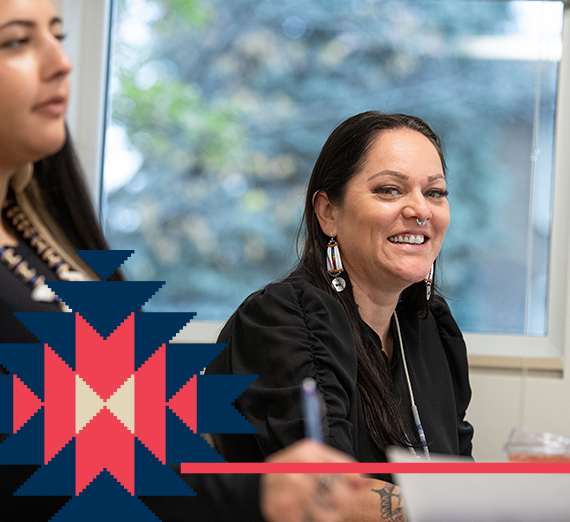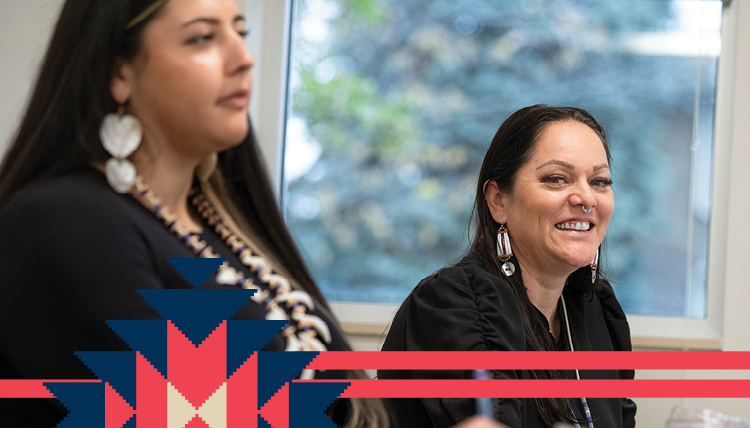Entrepreneurship for Stronger Tribal Communities

The School of Business Administration’s MBA in American Indian Entrepreneurship (MBA-AIE) has more than 80 graduates — all of whom received funding from the Johnson Scholarship Foundation. The two-year program connects students from a wide region through online courses and three in-person sessions each year.
Supplementing coursework, students visit different organizations to see how concepts apply to Native- forward businesses. M.B.A. Director Rebecca Bull- Schaefer says: “Students learn from both Native and non-Native instructors concerning theory, content, history, perspective and applications. Our program is designed to help guide students to think how they can continue to lead and develop their reservations, governments and businesses.”
That aspiration is evident for students like Alaina Capoeman-Davis, Quinault Nation citizen and descendant of the Gros-Ventre Tribe and Hoopa Tribe. Her entrepreneurial spirit — which includes making regalia to help pay for her undergraduate tuition — was a natural fit for the program.
Seeing the challenges of other Native artisans propelled her.
“I have a friend who’s a Coast Salish artist, and every year he has trouble with the taxes as a tribal artist,” Capoeman-Davis says.
She received funding to attend a conference of the Native American Finance Officers Association, where she learned about the goals of many Tribal enterprises to diversify the ways they generate income. With her M.B.A., she hopes to further those efforts by helping to establish an Indigenous Chamber of Commerce in Washington to provide resources.
“Keeping our money in Indian country is important,” Capoeman-Davis says.
Brandon Haugen (Kalispel Tribe), a 2011 graduate of the AIE program and a current doctoral student in Gonzaga’s School of Leadership Studies, is the executive director of real estate development for his tribe. As with many tribes, a casino can be a significant source of revenue, but Haugen is helping to diversify the economy with housing, retail and industrial development.
His working experience helped him recognize the importance of leadership, which led him back to GU for another degree. “I’m interested in learning how leadership influences place. What makes people go to certain places?” he says.
Both Haugen and Capoeman-Davis agree the sense of community at Gonzaga is a rewarding part of their education.
From western Washington, Capoeman-Davis has come to campus for three immersions thus far, and each opportunity gave her the chance to build relationships with students and faculty. From dinners to rounds of poker, they celebrate together, and that’s something she wants to foster. She has already shared her gift of making regalia by crafting ribbon shirts and skirts for her classmates.
Haugen says he came to Gonzaga with a bit of uncertainty, but “once I got into the community, I felt comfortable.
“At GU, there’s really a community, and you quickly feel at home.”

